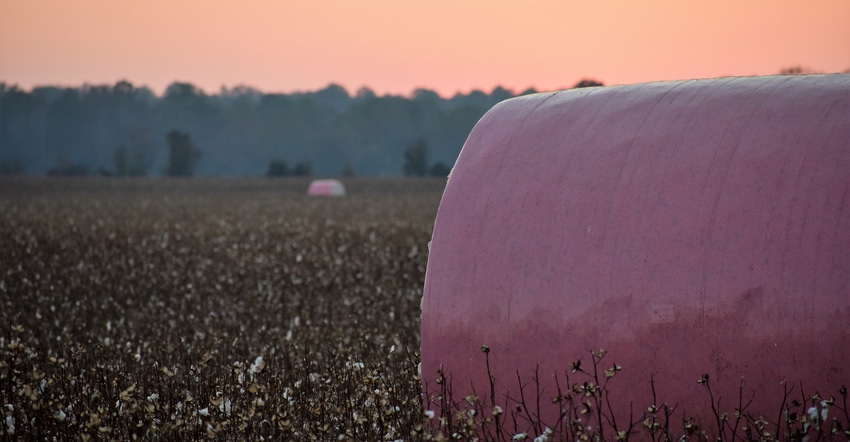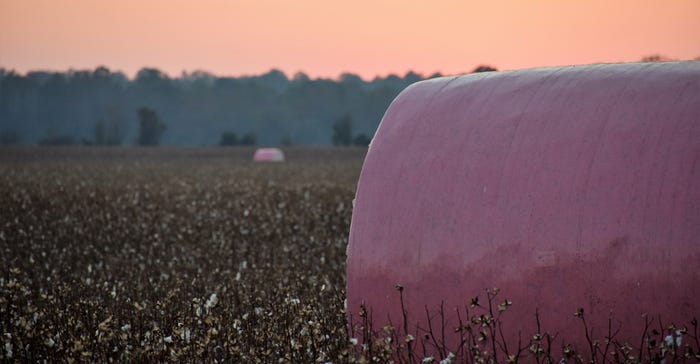November 28, 2017

Sponsored Content
Cotton growers in the Delta don’t pick one variety to plant and don’t choose a variety for next year while looking out the windshield of the picker.
“We know that yield and fiber quality influences our varietal selections for next season. Showy varieties tend to get our attention at harvest,” Bayer Regional Agronomist Steve Lee says.
However, Lee says, growers consider season-long performance when choosing next year’s varieties.
Early season vigor. “Establishing a solid stand and quicker canopy helps our overall weed management efforts and, as interest in cover crop options increases, this becomes even more critical,” Lee says.
Storm tolerance. “Boll type can influence a variety’s ability to weather the storm, especially in our northern area where earliness is so important,” Lee says. “Placing the right variety on the right field has been our focus and will continue as we develop new and improved varietal options.”
In addition to looking at yield and agronomic characteristics, Bayer Regional Agronomist Andy White urges growers to consider each of their fields when choosing varieties.
“We have many different varieties, different maturities, different growth habits, better fiber packages, better disease packages,” White says. “We can prescribe varieties for each field. One variety is not going to cover everything. Never in a season would I recommend a grower plant his entire farm to one variety. It’s just not a good seedsman that would do that sort of thing.”
White encourages growers to consider soil type, variety management needs and their management style when choosing cotton varieties. Field location and history also are essential components, particularly when considering weed management needs.
“Because of the proactive approach our growers have taken, they have been able to control resistant weeds in their fields. Driving by some of these fields you wouldn’t ever know or even think that they had a weed problem and that’s because they’ve been on top of it using the LibertyLink system on their farm to control pigweeds,” White says. “They go out and start early. They use a residual. They target small weeds. They use high water volumes. They slow down a little bit. We’ve had tremendous success with our growers using the LibertyLink system in controlling these resistant weeds.”

Growers in the Delta who are choosing varieties for 2018, should take a look at:
ST 4949GLT. Growers looking for strong disease management characteristics in a variety with exceptional yield potential should consider ST 4949GLT. Whether planted to dryland or under irrigation, this early/medium variety offers exceptional yield potential, good fiber quality and very high lint turnout. Growers familiar with ST 4946GLB2 can step into ST 4949GLT, which thrives under similar management.
“ST 4949GLT has excellent gin turnout – probably the best turnout in a Stoneville variety since we’ve been advancing varieties, good fiber quality, and Verticillium wilt tolerance, which is a very big plus for our growers in this area,” Lee says. “But the yield potential is probably the biggest advantage that we’ve seen with this variety.”
ST 5517GLTP. Growers can lessen the worry of battling heavy worm pressure by planting ST 5517GLTP. This late/mid variety performs well across a wide range of environments and has excellent fiber quality. ST 5517GLTP starts strong with early-season vigor and does not let bacterial blight or worms get in its way on the road to a high-yielding harvest.
“ST 5517GLTP has a smooth leaf and excellent fiber quality for an added bonus on top of its great yield potential,” Bayer Regional Agronomist Kyle Fontenot says.
ST 5020GLT. Growers can add income without increasing production cost by planting a variety known for high quality. ST 5020GLT is one of those varieties, offering premium fiber quality and strong yield to finish a season that starts with early-season vigor and standability.
“Another characteristic for ST 5020GLT is that it has bacterial blight resistance,” White says. “That’s a disease that has popped up in the last few years and growers who plant ST 5020GLT have better peace of mind in regard to pressure from bacterial blight.”
About the Author(s)
You May Also Like




